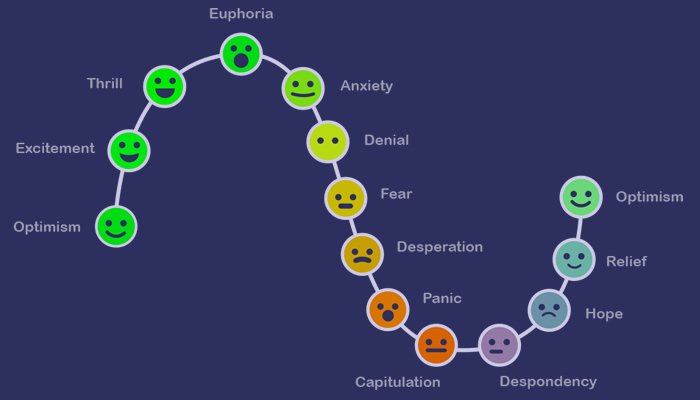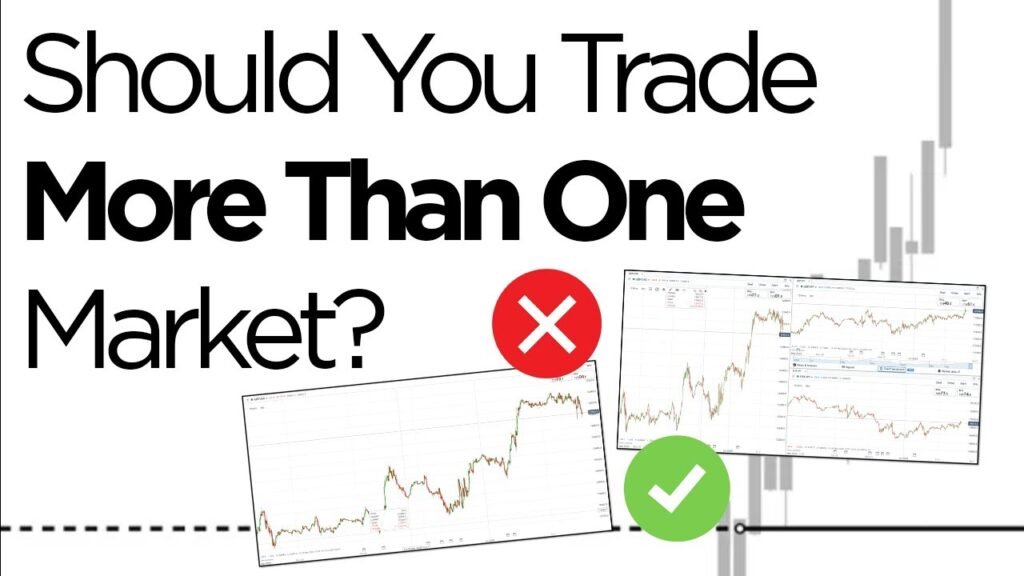In the complex world of trading, success is often elusive. In fact, a staggering 80% of day traders quit within the first two months. Why? Because they fall victim to common trading mistakes that derail their strategies and drain their accounts. But with the right knowledge and approach, these pitfalls can be avoided. In this guide, we’ll break down eight common trading mistakes and provide actionable steps to help you avoid them and whether you are a trading expert or a total beginner in trading, these highly important.
1. Trading with Emotions
Emotional trading is the bane of many traders, especially beginners. The markets can stir powerful emotions like greed and fear, which can cloud judgment. Greed often leads traders to chase after excessive gains, refusing to take profits when they should. Fear, on the other hand, can manifest as FOMO (Fear of Missing Out) or the fear of losses, leading to hasty decisions or panic selling.
How to Avoid It: To mitigate the impact of emotions, it’s essential to approach trading with a clear mind and a solid strategy. Remember, trading is 90% psychology and 10% execution. Take losses in stride, avoid revenge trading, and focus on making decisions based on logic rather than emotion.

2. Trading Without a Plan
Imagine going into battle without a strategy. That’s what trading without a plan feels like. A trading plan is your roadmap; it defines your risk/reward ratio, strategy, preferred trading sessions, and more. Unfortunately, many beginners jump into the markets without one, letting emotions drive their trades instead.
How to Avoid It: Develop a comprehensive trading plan that outlines your rules and stick to it. Your plan should be as detailed as possible, covering everything from entry and exit strategies to risk management techniques. This disciplined approach will keep you grounded and help you avoid impulsive decisions that can lead to significant losses.
3. Ignoring Risk Management
Risk management is the cornerstone of long-term trading success, yet it’s often overlooked by beginners. Whether it’s using too much leverage, neglecting stop-loss orders, or failing to set take-profit targets, poor risk management can quickly deplete your account.
How to Avoid It: Incorporate strict risk management rules into your trading plan. Always use stop-loss and take-profit orders to limit potential losses and lock in gains. A good rule of thumb is to never risk more than 1% of your account balance on a single trade, and avoid high leverage unless you’re fully aware of the risks involved.

4. Letting Losing Trades Run
We’ve all been there—watching in disbelief as a trade goes against us, hoping the market will turn in our favor. But often, it doesn’t, and by letting losers run, you risk catastrophic losses. This mistake is rooted in the inability to accept a loss, leading traders to hold onto losing positions far longer than they should.
How to Avoid It: Cut your losses early. If a trade isn’t working out, it’s better to exit and take a small hit rather than waiting for the market to turn. Use stop-loss orders to automatically close out positions at predetermined levels, ensuring that losses don’t spiral out of control.

5. Not Identifying Your Trading Style
Not every trading strategy suits every trader. For example, scalping requires quick decisions and the ability to react swiftly to market changes, while swing trading allows for more deliberate, long-term analysis. Many traders fail because they adopt a trading style that doesn’t match their personality or skill set.
How to Avoid It: Identify your trading style early on and tailor your strategy to fit it. Whether you’re a scalper, day trader, or swing trader, understanding your strengths and weaknesses will help you develop a strategy that suits your needs and maximizes your chances of success.

6. Trading Multiple Markets
Dabbling in too many markets—stocks, forex, commodities, cryptocurrencies—can be overwhelming, especially for beginners. Each market has its own nuances, and spreading yourself too thin can lead to confusion and mistakes.
How to Avoid It: Focus on mastering one market before diversifying into others. This will allow you to build expertise and confidence in your chosen market, reducing the likelihood of costly mistakes. Once you have a firm grasp on one market, you can slowly expand your horizons.

7. Starting on a Live Account
Jumping straight into live trading with real money is a common mistake. The thrill of making real profits can be enticing, but the risks are high. Without adequate experience, you could quickly find yourself in the red.
How to Avoid It: Start with a demo account to practice trading without risking real money. This allows you to familiarize yourself with the trading platform, test strategies, and build confidence before transitioning to live trading. Treat your demo account as seriously as you would a live account—this will help you develop good trading habits.

8. Failing to Continuously Learn
Trading is a dynamic field, and the markets are constantly evolving. Yet, many traders fall into the trap of complacency, neglecting to continue their education once they’ve achieved some success. This lack of ongoing learning can leave you unprepared for new challenges and opportunities.
How to Avoid It: Commit to continuous learning. Whether through books, online courses, webinars, or market analysis, always seek to expand your knowledge and refine your skills. Staying informed about market trends and emerging strategies will keep you ahead of the curve and improve your trading performance.

Final Thoughts
Trading is challenging, but avoiding these common mistakes will put you on the path to success. Remember, trading is a marathon, not a sprint. By staying disciplined, managing risks, and continually educating yourself, you can significantly improve your chances of long-term success. Choose a reputable broker, follow your trading plan, and never let emotions dictate your trades. With these principles in mind, you’ll be well on your way to navigating the markets with confidence and skill.
Follow Bro In Finance for more, and visit our social media pages to keep up with all the latest news.
May the pips be with you on this trading journey!!!
Disclaimer : Trading is highly risky, and you should be cautious with it. Thats why Bro In Finance is here to guide you to make wise decisions, but you should be mindful to do your own research as well, because in the end its your money.
Check out our article on the AvaTrade Review: Your Ultimate Guide to a Top-Tier Trading Experience
Written by D Fernando


